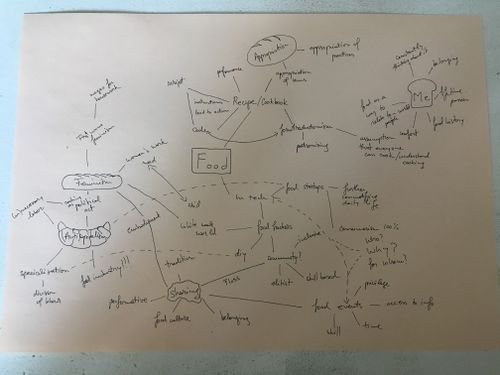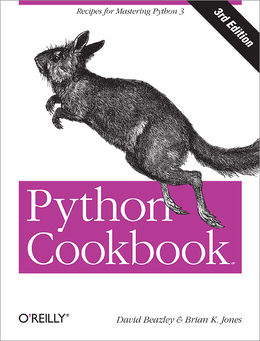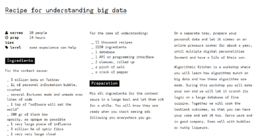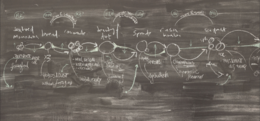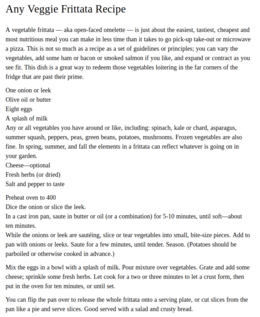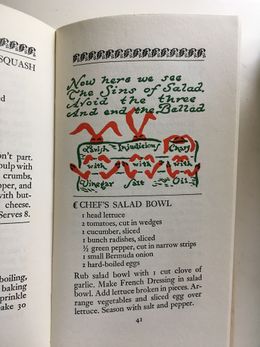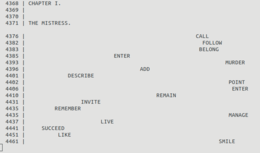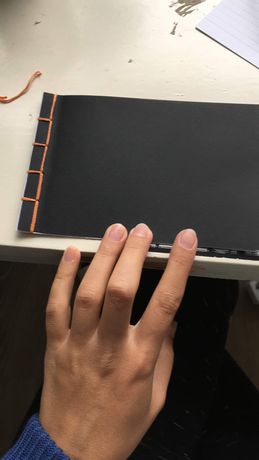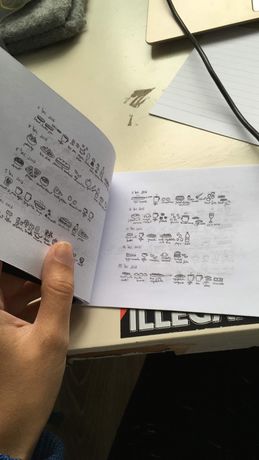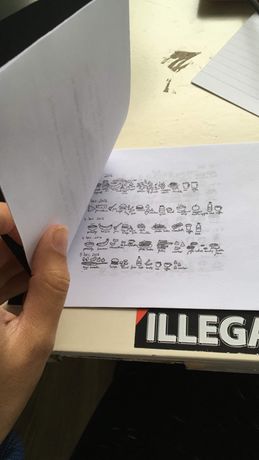User:Alice/Grad ideas: Difference between revisions
No edit summary |
No edit summary |
||
| Line 1: | Line 1: | ||
I'm going to go crazy here and write down all the bullshit I've been considering regarding this thesis/project, alongside all the food things that occupy my | I'm going to go crazy here and write down all the bullshit I've been considering regarding this thesis/project, alongside all the food things that occupy my b | ||
'''Mind map''' | |||
[[File:Mindmap.JPG|500px]] | |||
'''Thought''' | '''Thought''' | ||
Revision as of 15:28, 10 October 2018
I'm going to go crazy here and write down all the bullshit I've been considering regarding this thesis/project, alongside all the food things that occupy my b
Mind map
Thought
Cooking practices have been appropriated and taken over by tech culture. Food workshop, 'food hacking' have found their way into hackerspaces around the world. What is gained and what is lost by this hijacking? Why has software culture adopted terms such as 'cookbook', 'recipe', 'kitchen' into its practices of writing, collecting and experimenting with software? How can open-source free software culture practices be adopted and adapted to food culture? Is cooking an elitist practice?
Foodcritic is a linter and code standard enforcer for Chef cookbooks.
Foodcritic is a static analysis tool, meaning that it examines the code without executing it.
Foodcritic can find a wide range of issues, including formatting, deviation from best practices, and subtle bugs.
Thought
How can we reflect on cooking as an anti-capitalist action? Our time has been carefully structured so that we can spend as much time as possible being productive, as in producing capital and goods. Cooking is considered extra labour that we do not need to perform. Corporations have made it clear that cooking is something that they can provide, so that we can be simply consumers. Our free time should only be spend on leisure activities/entertainment, otherwise known as even more consumption.
Recipes

